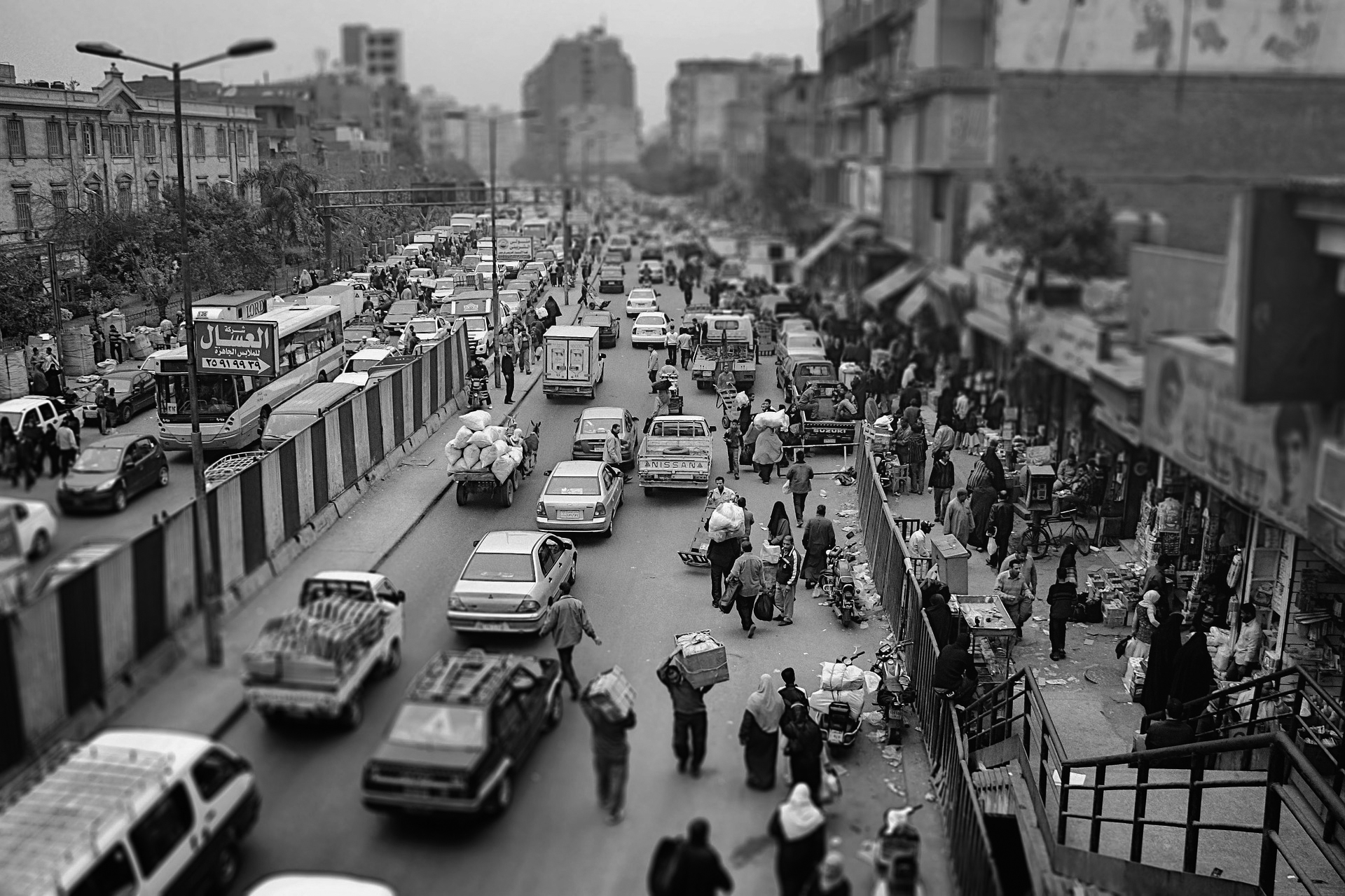Originally published November 2021.
Back in the mists of my own pre-history, I was given the The Big Book of Egypt on an early birthday. It was full of drawings, diagrams and maps of excavations. Egypt fascinated me then and still does today. I learned of pharaohs, dynasties, the angles to build a perfect pyramid (42.5 degrees), the Valley of the Kings and Tutankhamun, and all about the Nile, which brought the land fertility.
I read the histories of Greek, Roman, Arab, French and British conquests and interventions. Over the decades I’ve watched all the films and every documentary. Less practically, I completed two primary-school projects involving trips to the British Museum, building a pyramid out of yellow card and sticky-backed plastic with my son (more difficult than it sounds), and getting messy with my daughter as she mummified a broken Barbie doll in papier-mâché to make a pretty fine miniature horror-movie prop.
But I never got round to going to see Egypt for myself. Even though my wife has a degree in archaeology (she now works in financial IT), we’ve never found the time, promising ourselves a cruise up the Nile. Someday, sometime… when all the other stuff is out the way.
And suddenly, the opportunity to visit opened up this autumn.
New lockdowns might leave Europe closed, but the Middle East is open and the flights are busy. My first proper business trip in two years was a long one – time spent in Dubai putting together the financing package on a new infrastructure deal, followed by a trip to Egypt working with the team behind it to refine the models. (The only travel difficulties I encountered were in the UK – trying to get a pre-flight PCR test. The first company I paid up for failed to deliver – it was a start-up founded by some likely lads coat-tailing parliamentary chums who enabled their enterprise.)
“Dubai is overly clean, impossibly expensive, ordered, polite and lacks any clear character of its own”
The contrast between Dubai and Egypt is extreme. Dubai is overly clean, impossibly expensive, ordered, polite and lacks any clear character of its own. Don’t get me wrong – the restaurants, roads and hotels are superb. It’s just that it all feels somewhat lacking in identity. Everyone is an immigrant and everyone has the ‘big deal’ they desperately want to sell you.
Egypt is something else completely. It’s completely in your face. From the moment you arrive to the rigmarole of securing a visa and multiple passport checks, it’s different. Very different.
I was picked up from the airport and quickly realised Egyptian driving is more an exercise in fluid dynamics than road safety. In any other country the road lanes are obvious, but in Egypt the centre dotted line is advisory and two lines of traffic become three. Cars travel fast and impossibly close. There is no concept of waiting for a gap in the traffic – just honk the horn, pull out and expect others to stop seems to be how it works. I didn’t see a crash, but the fender-bender stripes down the sides of every single taxi illustrate how it works.
My first day in the office was a revelation. I turned up with my battered old laptop, but within moments the smiling IT guy had connected it to an ultra-large screen and arranged my desk with some cables. As soon as I was set up, my new colleagues popped in to say hello, then sat in front of my desk and ordered coffees. Through the morning my office filled with people who just stayed. We all sat there drinking delicious coffee and talking, talking and talking some more. Suddenly I realised – we’d already identified half-a-dozen issues I was expecting would take weeks to agree on. We kept talking and without anyone actually doing any apparent work, we’d agreed and put together a plan in time for lunch, and a first client meeting. That went so well everyone agreed it was time to go home.
Walking round a strange noisy city felt utterly safe – everyone wants to sell you something and show you their shop, but there is no sense of tension or danger. A polite “la shukran” (no thanks) is enough. Smile and keep walking. Everyone smiles.
“In the superb new Civilisations Museum, I was taken with the statue of the Pharaoh Akhenaten – and amazed when the lanky waiter serving us lunch had exactly the same long facial structure and forehead”
In between the office I spent a weekend doing the sites and realised the faces of the kings, queens, scribes, officials and peasants I’d seen in the museums are reflected today in the people I saw on the streets. In the superb new Civilisations Museum, I was taken with the statue of the Pharaoh Akhenaten – and amazed when the lanky waiter serving us lunch had exactly the same long facial structure and forehead. A pretty girl in the bar had exactly the same perfect shape as the 4,500-year-old head of Nefertiti. The majo-domo at my hotel is a dead-ringer for a wooden statue of a town official from 3700 BC.
I’d gone to Egypt with a simple economic perspective on the nation: all the economic analysis presents it as the most populous Arab nation. With 103 million citizens, it faces an enormous human problem: creating new jobs and infrastructure to provide jobs for and to support a population that is expected to double by 2050. One hundred years ago the population was just over 12 million – most of the rural fellaheen living exactly as their ancestors had lived 4,700 years earlier as the pyramids were built and when the Nile supported a population of less than two million.
I quickly learned to forget what the textbooks say. Egypt is not Arab. They are Egyptian. All around the globe civilisations have risen and fallen around fertile rivers, but only in Egypt did society develop into such an extraordinarily long-lived one, leaving such a glut of treasures. The pharaohs set a precedent – Egypt thrives under strong leaders and quickly collapses into chaos when they’re missing.
Why did the pharaohs spend so much of the nation’s wealth on extravagant tombs? Modern thinking is they were more work creation projects designed to support peasants through the Nile’s annual flood-set seasonality than just bragging. But there is something else that sets Egypt apart from more combustible states: it’s about a sense of common Egyptian identify and approach.
Peering out the window of my office or hotel, Cairo is a simply massive city. It looks absolutely filthy – pollution and desert dust colour it dirty. Yet it remains vibrant. Since the disruption that followed the 2011 Arab Spring revolutions that shook the whole region, Egypt has emerged surprisingly well. It’s one of the few nations that posted positive growth during Covid, despite its economic reliance on tourism. The government of former General Adbel Fattah el-Sissi has delivered to the view Egyptians hold of their nation, embracing its past, addressing the future, rejecting fundamentalism with a tolerant perspective, and significant Jewish and Christian communities. They remain a proud and patriotic people, an identity that lies between a need for both strong leadership and a consensus society. Like all things in Egypt, it works because it does.
While Egypt’s economy has struggled without tourism, Sisi has been getting stuff done – new roads, new buildings, new museums. The next stage is to attract external investment, rein in the powers of bureaucracy and build a strong post-oil, industrialised, high-value job-creating economy fit for the future and a new era. It’s happening.
Egypt faces enormous challenges, not just in terms of the opportunities for its human capital – for instance, water-security will likely become Egypt’s no 1 theat – but after just a short-time among the people, I suspect they will positively surprise us.
And, yes, I’m going back as soon as I can.








